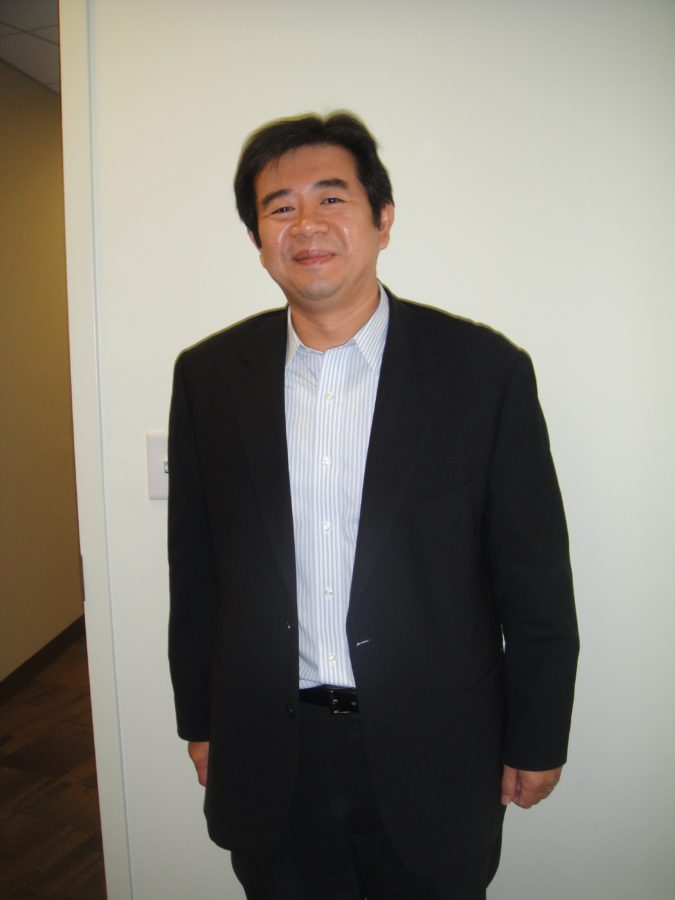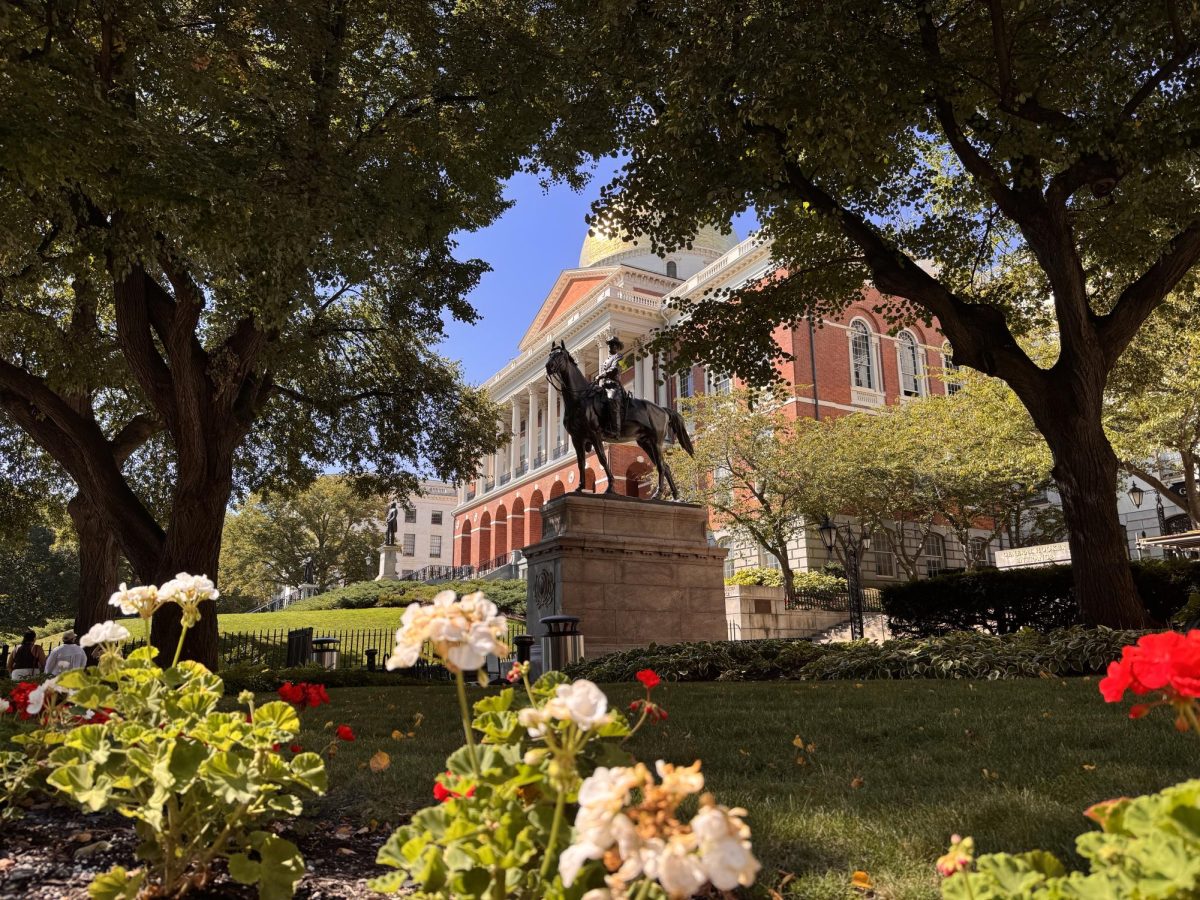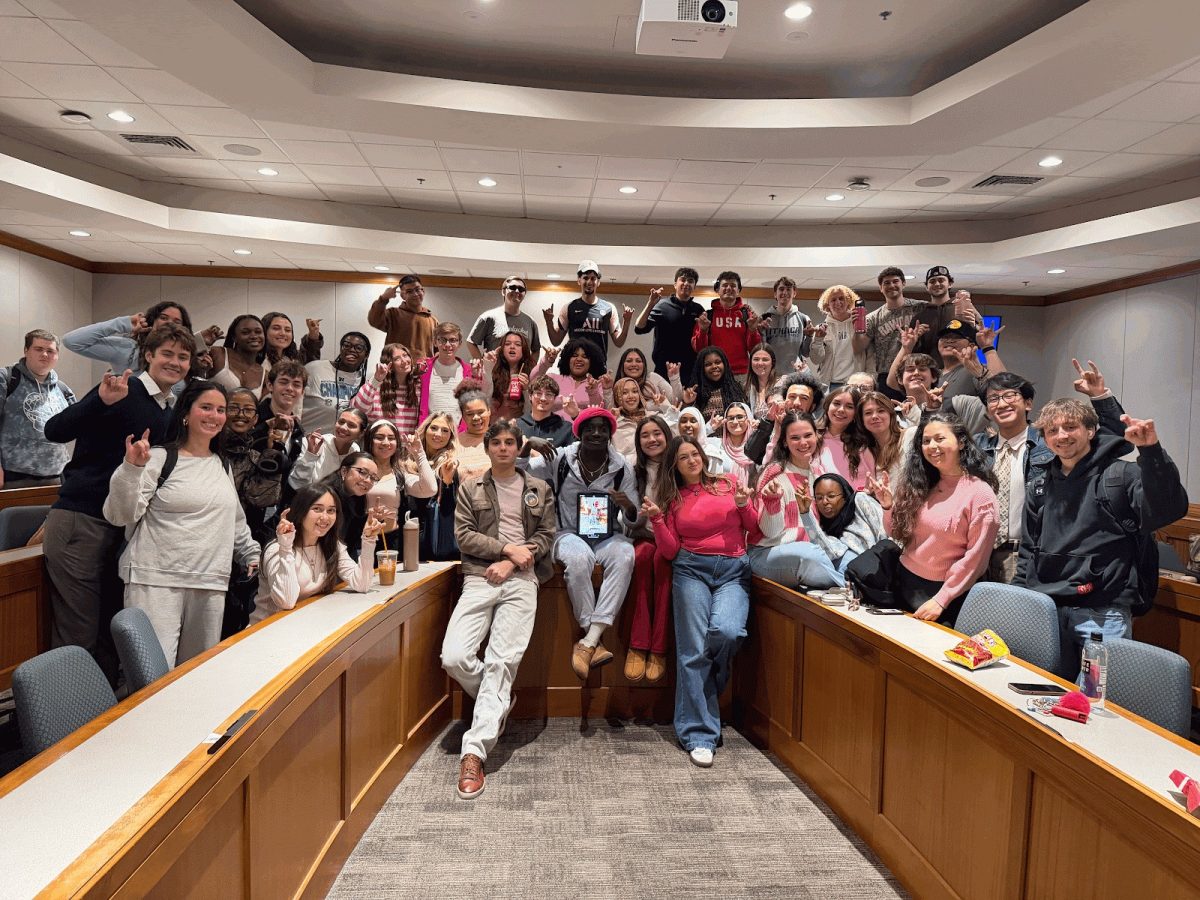Alison Melillo, Journal Contributor
Kuo-Ting Hung, Suffolk associate professor of Information Systems and Operations Management (ISOM), recently won the Best Theoretical/Empirical Research Award for the Decision Sciences Institute (DSI) Conference, which occurs this November in Boston.
Last month, after many years of researching, Hung was delivered the news. He and his partner, Chan Chai Tangpong, had been working since 2003, and it was not until 2007 that he won the Best Paper award for Supply Chain Distribution.
“We knew in July, and we began preparing for the presentation. Finally, in September, they called us to congratulate us. That was very exciting,” said Ken as he smiled proudly.
He assumed that when he was notified in July that it was just another Best Paper Award, but was pleasantly surprised to find out that this was for the whole conference, and it was something they had not won before.
While working in ISOM, Hung focuses a lot on the teaching of systems in the computers and installing the software used within the university. The research that he conducted went far beyond the classroom, looking at businesses as a whole. Hung and Tangpong looked at the business as an individual and focused on figuring out where decision making in a business takes place.
Through his research, Hung concluded that “businesses do not make decisions; individuals in the business make decisions, or influence other people to make these decisions.”
Starting with a small project in 2007, Hung and Tangpong published four different papers that each got published. It wasn’t until 2010 that these projects were finally accepted by a top journal.
For Hung to be involved in this international conference, a long process of examination took place by the people involved in the conference. The steps included writing the paper, submitting it, and hoping to get a time slot to present research. The review board then has to examine the research and decide whether or not, through a peer review process, if it is worthy or not. It undergoes many rounds of review before a final decision is made. Many people who submit research will get a time slot, but only a few, including Hung will receive a time slot to display research to everyone.
The main idea of these conferences, like the one coming up November 19 to 22 in Boston, is for presenters to deliver their research in a way to communicate ideas and teach people what they have discovered.
For past conferences, Hung has traveled to places like San Antonio and San Francisco, but said he is glad the upcoming conference will be in Boston so his friends will be able to attend.














